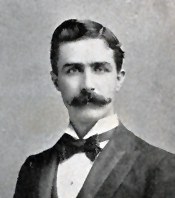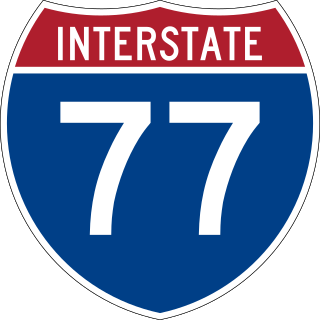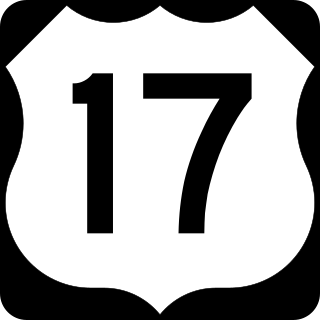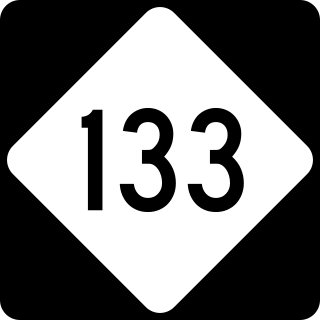
Iredell Meares (December 15, 1856 - September 1931) was a lawyer, public speaker, and politician in North Carolina. His obituary describes him as one of lower Cape Fear's most colorful characters. [1]

Iredell Meares (December 15, 1856 - September 1931) was a lawyer, public speaker, and politician in North Carolina. His obituary describes him as one of lower Cape Fear's most colorful characters. [1]
He was born in Raleigh, North Carolina into a prominent family. His family's finances were wrecked by the Civil War and father died in 1871. [2]
A Democrat, he became an independent, then a Republican, and ran for governor as a Progressive. [2]
He reportedly sent his co-counsel a poem in lieu of a fee. [3] He served as deputy of customs in Wilmington. [4] He testified on the proposed establishment of a Department of Education in Washington D.C. He was a lawyer for the Sentinels of the Republic. [5]
He was a Progressive Party candidate in the 1912 North Carolina gubernatorial election. [6] Later in his career he worked in Washington D.C. [1]
He owned two Albert Rosenthal etchings, one of James Iredell. [7]
He was married to Josephine Meares. They had a daughter. He died September 1931 in Wilmington, North Carolina. [1]

William Walton Kitchin was an American attorney and the 52nd governor of the U.S. state of North Carolina from 1909 to 1913.

The North Carolina General Assembly of 1777 met in two sessions in New Bern, North Carolina, from April 7 to May 9, 1777, and from November 15 to December 24, 1777. This was the first North Carolina legislature elected after the last provincial congress wrote the first North Carolina Constitution. This assembly elected Richard Caswell as the state's first constitutional governor.

The Wilmington insurrection of 1898, also known as the Wilmington massacre of 1898 or the Wilmington coup of 1898, was a coup d'état and a massacre which was carried out by white supremacists in Wilmington, North Carolina, United States, on Thursday, November 10, 1898. The white press in Wilmington originally described the event as a race riot caused by black people. Since the late 20th century and further study, the event has been characterized as a violent overthrow of a duly elected government by a group of white supremacists.

The Episcopal Diocese of North Carolina is a diocese of the Episcopal Church within Province IV that encompasses central North Carolina. Founded in 1817, the modern boundaries of the diocese roughly correspond to the portion of North Carolina between I-77 in the west and I-95 in the east, including the most populous area of the state. Raleigh, Charlotte, Winston-Salem, Greensboro, and Durham are the largest cities in the diocese. The diocese originally covered the entirety of the state, until the Diocese of East Carolina which stretches to the Atlantic was formed in 1883, and the Diocese of Western North Carolina which lies to the west extending into the Appalachian Mountains was formed in 1922.

Thomas Settle was an American lawyer who served for two terms as a member of the U.S. House of Representatives from North Carolina from 1893 to 1897. A Republican, he was the son of Thomas Settle, a judge and politician in North Carolina, and a grandson of Thomas Settle (1789–1857), also a U.S. Representative from North Carolina.

Interstate 77 (I-77) is a part of the Interstate Highway System that runs from Columbia, South Carolina, to Cleveland, Ohio. In North Carolina, I-77 enters the state at Charlotte, from South Carolina. Crossing the Piedmont, it connects with Statesville before continuing north into Virginia. The landscapes traversed by I-77 is a contrast of urban and rural foothills, with views of the Blue Ridge Mountains seen from a distance on its most northern section. The Interstate extends for 105.7 miles (170.1 km) and has one auxiliary route.
The 1889 Wake Forest Baptists football team was an American football team that represented Wake Forest College as an independent during the 1889 college football season. Led by W. C. Riddick in his second and final season as head coach, the Baptists compiled a record of 2–2.

David Moffatt Furches was an American politician and jurist who served as an associate justice (1895–1901) and chief justice (1901–1903) of the North Carolina Supreme Court.

U.S. Highway 17 (US 17) in the U.S. state of North Carolina is a north–south highway that is known as the Coastal Highway in the southeastern half of the state and the Ocean Highway in other areas. The route enters the state from South Carolina near Calabash and leaves in the vicinity of the Great Dismal Swamp National Wildlife Refuge in Virginia. Between the US 64 freeway and the Virginia state line, US 17 is a four-lane divided highway with speed limits varying between 45 mph (72 km/h) and 70 mph (110 km/h).

James Iredell was one of the first Justices of the Supreme Court of the United States. He was appointed by President George Washington and served from 1790 until his death in 1799. His son, James Iredell Jr., was a Governor of North Carolina.
The 1889 North Carolina Tar Heels football team represented the University of North Carolina in the 1889 college football season. They scheduled two games with a final record of 1–1. The team captains for the 1889 season were Lacy Little and Steve Bragaw. After the University banned football there were no games in 1890. Football was reinstated in 1891 and a coach was hired. Although a game was scheduled in February, it was canceled and games would not resume until the next academic year.

Joseph Florence Leitner was an American architect whose work includes several rail stations. In Columbia, South Carolina he worked for Charles Coker Wilson for five years. Later he partnered with William J. Wilkins (architect), first in Florence, South Carolina and then in an office in Wilmington, North Carolina, where Leitner practiced for a decade. to form Leitner & Wilkins. His work included commercial, educational, fraternal religious, industrial, residential, and transportation buildings in colonial revival architecture, Flemish architecture (especially gables, Italianate architecture and Romanesque revival architecture styles. He ended his career in Florida.
Legal forms of gambling in the U.S. state of North Carolina include the North Carolina Education Lottery, three Indian casinos, charitable bingo and raffles, and low-stakes "beach bingo". North Carolina has long resisted expansion of gambling, owing to its conservative Bible Belt culture.

North Carolina Highway 133 (NC 133) is a primary state highway in the U.S. state of North Carolina. It traverses 46.6 miles (75.0 km) from Oak Island Drive in Oak Island to NC 210 in Bells Crossroads. The route serves communities such as Southport, Belville, Leland, Wilmington, and Castle Hayne. Additionally, NC 133 serves as an entry point for Military Ocean Terminal Sunny Point located to its east. Much of NC 133 runs parallel to the Cape Fear River and Brunswick River between Southport and Belville. West of Wilmington, NC 133 runs concurrently with U.S. Route 17 (US 17), US 74, and US 76. The road follows another concurrency along US 74 and US 421, west of Downtown Wilmington, and crosses into New Hanover County on the Isabel Holmes Bridge. North of Wilmington, NC 133 exits to the north, serving several suburban communities north of Wilmington. NC 133 runs concurrently with US 117 through Castle Hayne, before bearing northwest toward Bells Crossroads.

North Carolina Highway 901 (NC 901) is a primary state highway in the U.S. state of North Carolina. The highway serves to connect the town of Harmony with nearby major highways.
Amity Hill is a populated place in Chambersburg Township, Iredell County, North Carolina, United States. The community is 8.75 miles (14.08 km) south southeast of Statesville. The Wayside Volunteer Fire Department is located in the Amity Hill community.
Mussenden Ebenezer Matthews (1750–1830) was an early settler in Iredell County, North Carolina, military officer in the American Revolution, speaker pro tem of the North Carolina House of Commons, plantation owner, and elder in the Fourth Creek Congregation Presbyterian Church.

Columbus Vance Henkel Jr. was a North Carolina politician.
The Carolinian. formerly the Carolina Tribune, is an African-American newspaper published in Raleigh, North Carolina, United States.
Alfred Augustus Howe was an American carpenter and politician in North Carolina. He served as an alderman in Wilmington, North Carolina and as a county commissioner. He was African American.